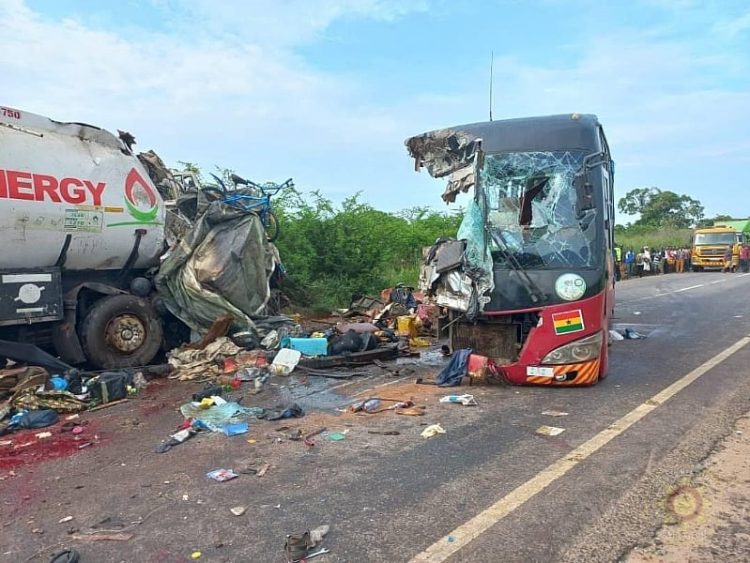In the past decade, road traffic deaths in Africa have risen significantly, with nearly 250,000 lives lost in 2021 alone, according to the latest World Health Organization (WHO) report on road safety in the African region.
This increase contrasts sharply with a global decline of 5% during the same period.
The report highlights that between 2010 and 2021, there was a 17% increase in road-related fatalities in Africa.

Despite accounting for only 15% of the world’s population and 3% of its vehicles, the region accounts for nearly one-fifth of global road deaths.
The rise is attributed to factors such as inadequate road safety laws and standards.
Currently, no country in the region meets best practice standards for key road safety factors like speeding, drink driving, helmet use for motorcyclists, seat belts, and child restraints.
Dr. Matshidiso Moeti, WHO Regional Director for Africa, emphasized the urgent public health challenge posed by these findings, stressing WHO’s commitment to collaborating with countries to address preventable road traffic deaths.
The report notes that males aged 15-64 years are most affected, with vulnerable road users such as motorcyclists, cyclists, and pedestrians bearing the brunt. Motorcycle-related deaths have doubled over the past decade.
Few countries have made progress in developing multimodal transport systems that cater to bicycles, motorcycles, pedestrians, and efficient public transport.
This approach is seen as more equitable, environmentally friendly, and safer.
However, Africa’s rapid growth in the used vehicle market has led to a near-doubling of total vehicle registrations since 2013, alongside a tripling in registrations of two- and three-wheel vehicles.
While some countries have introduced laws on vehicle safety equipment, pedestrian protection remains a significant gap.
Road infrastructure safety ratings are generally low, with only a small percentage meeting acceptable standards for various road users.
The report underscores the need for enhanced efforts to implement national road safety strategies in Africa, including sustainable transportation policies, strengthened legislative frameworks, improved data management systems, and better post-crash response capabilities.
WHO is actively supporting countries in these efforts through advocacy, technical assistance, awareness campaigns, and training initiatives.
However, challenges remain, including inadequate data systems capturing injury severity and insufficient post-crash care services across the region.
Meeting the UN target of halving global road traffic deaths and injuries by 2030 will require concerted action and tailored interventions addressing Africa’s specific road safety challenges.
























































![[FREE FREE MONEY] Predict and Win a Guaranteed GH¢200 From Us EVERY WEEK](https://wordpress.ghanatalksradio.com/wp-content/uploads/2022/02/Predict-and-Win-Final-09-03-2021-218x150.jpg)
![[Predict & Win – 8th/Oct.] WIN A Guaranteed ¢200 From Us This Week](https://wordpress.ghanatalksradio.com/wp-content/uploads/2021/10/maxresdefault-16-218x150.jpg)
![[Predict & Win – 2nd] WIN A Guaranteed ¢200 From Us This Week](https://wordpress.ghanatalksradio.com/wp-content/uploads/2021/09/maxresdefault-50-218x150.jpg)
![[Predict & Win – 25th] WIN A Guaranteed ¢200 From Us This Week](https://wordpress.ghanatalksradio.com/wp-content/uploads/2021/09/maxresdefault-36-218x150.jpg)
![[Predict & Win – 18th] WIN A Guaranteed ¢200 From Us This Week](https://wordpress.ghanatalksradio.com/wp-content/uploads/2021/09/maxresdefault-23-218x150.jpg)








![[National cathedral] See full list of churches that have contributed since 2018](https://wordpress.ghanatalksradio.com/wp-content/uploads/2020/09/Ghana-National-Cathedral-GhanaTalksRadio-100x70.jpg)



